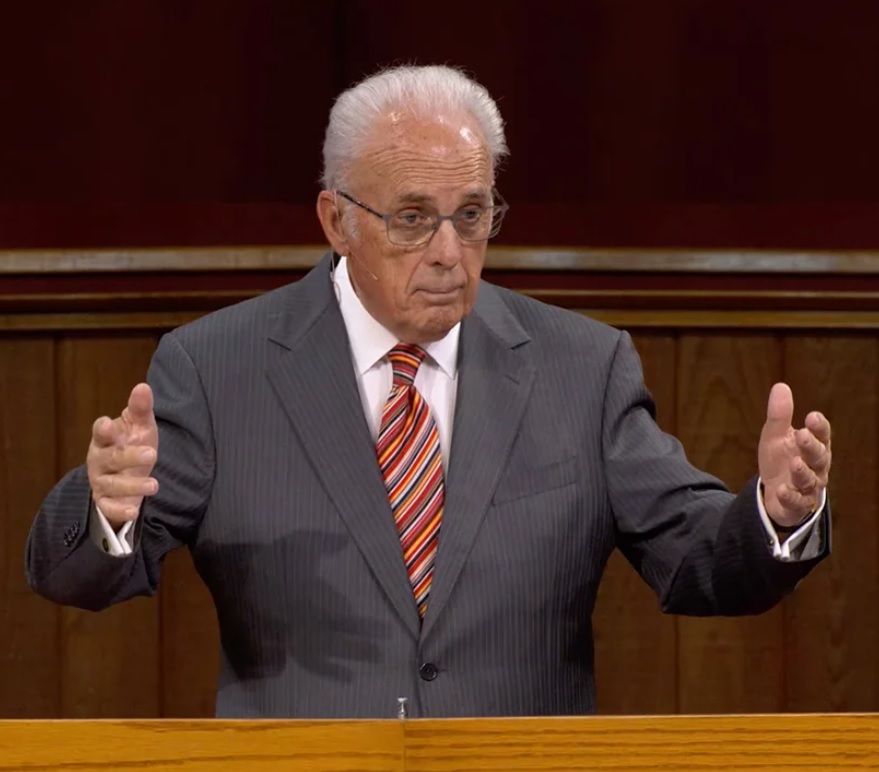I have been sustaining a lot of flack (including hate mail) for my review of the movie The Essential Church. This movie tells the story of John MacArthur’s fight to keep his church open during the COVID lockdowns, while making a case that Caesar has no jurisdiction over Christ’s church. Pastor MacArthur summarized his position aptly when he remarked, “There’s no room to share that headship with any government agency.” The documentary also has a parallel narrative about two pastors in Canada who refused to obey lockdown orders and were ultimately arrested for their stance.
In my review I draw attention to what I see as numerous flaws in MacArthur’s stance, while arguing that Christ does indeed share His headship with governmental agencies. Moreover, I argue that the state does have God-given authority to dictate worship or even prohibit public when protecting the common good.
Part 1 of my review looks at the historical context of the documentary, and the background to the legal battle between MacArthur’s church and the state of California. This article offers a teaser to some of the uncomfortable questions that emerged in 2020 about sphere sovereignty and the concurrent overlapping jurisdictions of church and state. I also offer an introduction to political theology, and how wisdom from church tradition can inform the type of conflict that Grace Community Church found itself in with the state of California, as well as more general concerns that churches were unfairly targeted during the COVID lockdowns.
Part 2 engages in more close contact fighting with Pastor MacArthur, including false dilemmas they set up, neglect of historical precedent, and contrary perspectives from the Puritan theologian Richard Baxter. From the article:
It is far from straight-forward to determine the proper jurisdictional spheres for the temporal and spiritual orders. Yet The Essential Church treated the problem as Biblically obvious, a slam-dunk issue once one understands the proper interpretation of Romans 13 and 1 Peter 2:13-25. It’s as if we simply need to get the correct understanding of sphere sovereignty, and then go into the world to apply that understanding to whatever situations that might arise. With this methodology, there is little space for the role of situation-specific prudence that, I would argue, is essential to wise moral reasoning.
Moreover, the film never gave voice to the counter-arguments posed by thoughtful Christians, and when it did reference alternative views, these tended to be straw-man arguments and not the reasoned objections of Pastor MacArthur’s most thoughtful interlocutors. One such straw-man argument was the recurring false dilemma that either Caesar is head of the church, thereby implicating a type of Erastianism whereby the state has unlimited powers over Christian communions, or Christ is the head of the church in a sense that justifies (a) total ecclesial autonomy over gathering and (b) the type of civil disobedience practiced by the Scottish covenanters, should that autonomy ever be threatened.
This false dilemma isn’t softened by the fact that the film nowhere advocates the strong “Caesar not Christ” position that would exclude the state from oversight over things like the church’s electrical and plumbing codes. While the documentary supports a moderate “Christ not Caesar” position that would only identify governmental overreach in situations where civil regulations impact worship, this moderate position is never allowed to temper the false dilemma between total Erastianism vs. total ecclesial autonomy.
Even the moderate “Christ not Caesar” position of the documentary seems to deny that there can be any real and actual confusion between concurrent overlapping jurisdictions, since the entire question of jurisdiction is settled as a matter of principle before we even reach the practicalities of specific situations. But consider some hypothetical situations. Does the state have a right to intervene in church services when stopping a preacher from inciting a riot, or if a pastor is divulging state secrets in a sermon, or if the church is polluting a river? Are there times when it is appropriate for the church or state to intervene in the institution of the family? Questions like these show just how inadequate it is to try to settle these questions on a purely a priori footing. In reality, the jurisdiction of concurrent institutions constantly overlap, creating conflicts that must ultimately be assessed using situation-specific prudence.
Yet a viewer of The Essential Church might be forgiven for coming away with the impression that concurrent institutions never overlap, and that questions of jurisdiction can be settled on a priori rather than prudential grounds. This impression is fortified when the film cites John MacArthur saying, “There’s no room to share that headship with any government agency.”
Not everyone has been happy with my review, and people have been saying some very hateful things about me, while others have dismissed the review as “a shallow and shoddy hit piece.” Read the review yourself and decide.
- Christ, Caesar, and Political Theology: Background to the Documentary, “The Essential Church”
- Christ not Caesar? Review of “The Essential Church”
Further Reading



